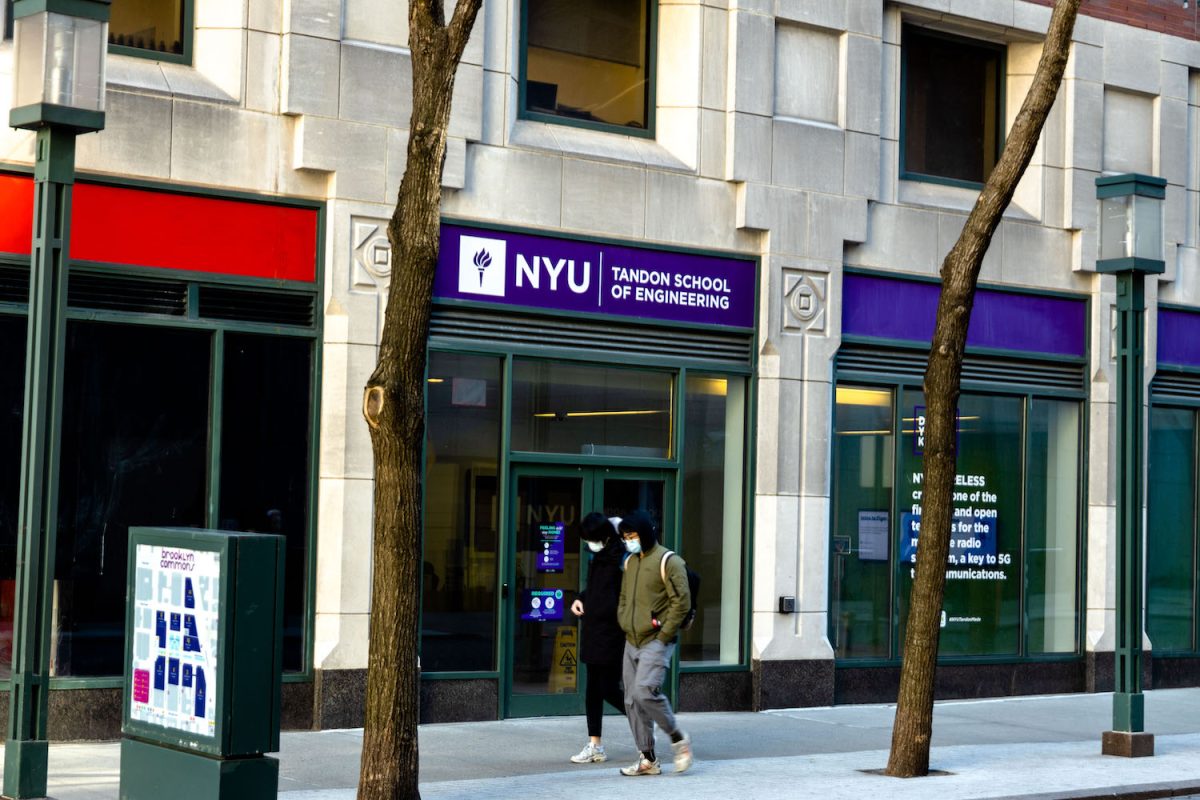Last month, Juan de Pablo assumed his position as dean of the Tandon School of Engineering and as NYU’s inaugural executive vice president for global science and technology, following a decadeslong career as a chemical engineer and college professor. The new administrator spoke with WSN to discuss his goals for Tandon and beyond — including creating a master’s degree program in cybersecurity and expanding research in climate-centered engineering.
This interview has been edited for length and clarity.
WSN: What do you hope to accomplish at Tandon?
De Pablo: What I want to do is elevate the entire School of Engineering — take advantage of some of the areas of excellence that we already have, and rethink engineering at NYU. Traditional engineering schools are built around the model that was developed 150 years ago, and I don’t think that if we were to design the School of Engineering from scratch today, we would follow that model. Part of what I want to try to do is just modernize school, eliminate boundaries as much as I can and reorganize us in a manner that allows us to train our students better — to improve research, attract more talent and anticipate the changes that are coming so we can truly be a leading school of engineering over the next decade.
NYU President Linda Mills and Provost Georgina Dopico announced de Pablo’s appointment for both positions in a July universitywide memo. In the memo, Mills and Dopico cited the university’s aim to further its global presence and resources in science and technology, initially outlined in October 2023.
Prior to his appointment, de Pablo, who was raised in Mexico, worked as a chemical engineering professor at the University of Wisconsin-Madison for 20 years. In 2012, the University of Chicago hired him to create an engineering school and program for the university. De Pablo’s research, detailed in hundreds of publications, highlights a variety of subjects in chemistry and computational science — including liquid crystals and macromolecules, algorithms to predict the molecular structure of various substances and data-driven machine learning.
WSN: Why do you want to create a master’s degree program in cybersecurity?
De Pablo: The degree would be available to existing undergrad NYU students who want to retool a little bit — we have one of the finest cybersecurity programs. Imagine if you have a bachelor’s degree in psychology or one of the social sciences, you want to strengthen your job opportunities for when you graduate. Well, perhaps a master’s degree in cybersecurity does that for you.
In his executive vice president role, de Pablo will oversee the expansion of research space at NYU’s Washington Square and Brooklyn campuses as well as the hiring of over 100 faculty members in coming years. Mills and Dopico said in the July memo that the university will soon announce various “global science and technology endeavors” that de Pablo will also spearhead in his position.
WSN: What does the role of executive vice president for global science and technology entail?
De Pablo: What I have been asked to do is to rethink, invigorate and augment the entire science and technology enterprise for the university — that includes all of the sciences and all of engineering. NYU is trying to make sure that over the next several years, we elevate all of its connections to other disciplines and bring it to a level that is consistent with our aspirations at the forefront of all of the premier universities in this country and in the world — we have many assets and many pockets of excellence. We want to build onto strengths, and we want to correct the gaps and elevate everyone.
A group of faculty at NYU created a search committee for a new Tandon dean in July 2023, following Jelena Kovačević’s announcement that she would resign from the position ahead of the current academic year. Kovačević, who was appointed as dean in 2018, had planned to return to NYU as a faculty member at Tandon after taking a sabbatical.
WSN: How do your roles as Tandon dean and executive vice president of global science and technology intersect?
De Pablo: You cannot do one or the other job in isolation, and elevating the entire university can only be done if you have full oversight over both engineering and sciences. So we need to grow them both in a manner that is synergistic, coordinated and again, in a manner that eliminates boundaries as opposed to making them stronger. We are planning some very exciting offerings and developments in climate science engineering, for example, which has to involve all of those elements — the economics of climate, the risk associated with the changing climate, the social impact of climate science. It’s one of the areas that we’re going to be pushing for very strongly, and that will involve many, many schools from the university. Everything that we’re doing has the students in mind. We want to create the opportunities that expose them to world class research, and we’re going to be doing that at lightning speed. We’re doing those as we speak.
Contact Amelia Raymond at [email protected].

























































































































































